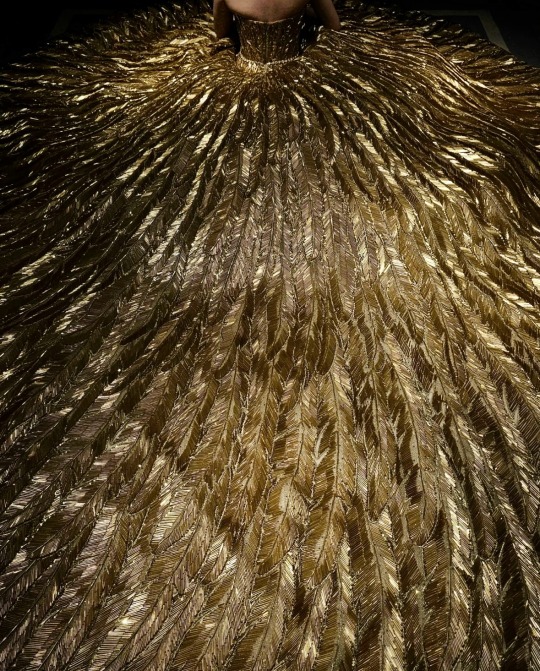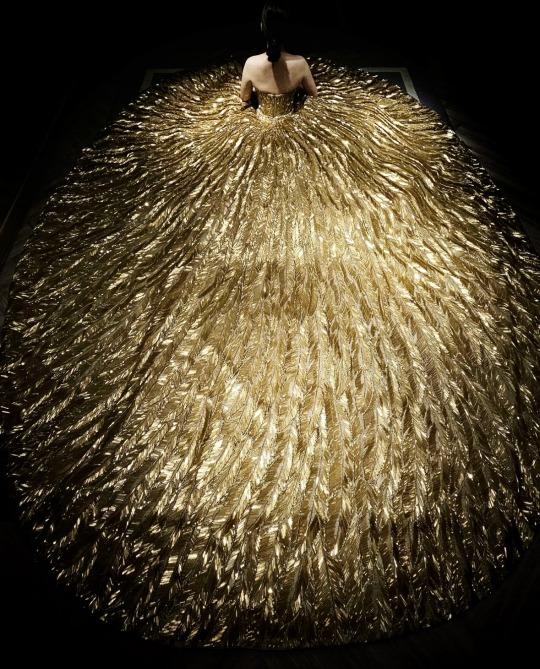Photo


June, 1935 Journals of Anais Nin 1934-1939 [volume 2]
926 notes
·
View notes
Text
Trauma Doesn’t Equal Narcissism and Alina Starkov Isn’t the Villain You’re Looking For
It’s interesting how often discussions of Alina’s trauma responses turn into clinical diagnoses, while the Darkling’s suffering is framed as tragic depth. The truth is, both characters are fractured by their pasts, they simply fracture differently.
First Alina’s defensiveness isn’t narcissism. It’s the scar tissue of a life where being vulnerable got her hurt. Her need for boundaries, her refusal to be shaped into someone else’s weapon or saint, that’s not arrogance, it's survival. She learns slowly and painfully, that her worth isn’t tied to being useful or adored.
The Darkling, by contrast, is often framed as “morally complex” when his trauma leads him to manipulate, coerce, and destroy. But his cruelty isn’t depth, it’s despair turned into control. After centuries of loneliness, he stops seeing people and starts seeing tools. Where Alina resists being used, he clings to using others as the only form of connection he understands.
What makes their dynamic so tragic is that they both want to be seen. Alina wants freedom and meaning. The Darkling wants a mirror. And when she won’t reflect back what he needs, he breaks the glass.
1) No one is saying teenagers are above critique, but let’s be honest about the double standard
Alina’s behavior is framed here as “selfish, insecure, entitled, self-righteous,” all while being a traumatized 17-year-old pulled into a war she didn’t start. Meanwhile, the Darkling who literally expands a shadow wasteland, murders innocents, and manipulates her is mourned as a tragic, lonely soul “just looking for connection.”
Why is his trauma poetic while Alina’s is pathologized?
It’s a gendered double standard, powerful men are viewed as complex antiheroes even when they cause mass suffering, while young women navigating power are judged for every misstep. When the Darkling seizes control, it’s “a symptom of centuries of grief.” When Alina resists that control, it’s “entitled.”
Her “victim complex” is mentioned with disdain. But what else do you call someone raised in poverty, orphaned by war, neglected by their caretakers, and then elevated to sainthood against her will? She doesn’t ask to be worshipped. She actively resists it. Her choices may be flawed, but they come from a desire to do the right thing, not to dominate.
Calling that narcissism isn’t nuanced, it’s lazy.
2) Narcissistic traits aren’t just pulled from a childhood bingo card
The argument that Keramzin is a “perfect breeding ground for narcissists” because it was emotionally repressive is deeply reductive. Trauma can absolutely lead to unhealthy behaviors. But it can also lead to resilience, boundaries, and clarity, which is exactly what we see in Alina.
She challenges power: Baghra, the Darkling, even Nikolai. She isn’t “blindly loyal” to anyone. Her trust in Baghra stems from shared vulnerability, and when Baghra falters, Alina recalibrates in Ruin and Rising.
Mal is part of her story, not the author of it: And for those who claim she has “Mal tunnel vision,” let’s be clear, Mal is important to her, yes. He’s her last tie to a life before all this chaos. But her arc doesn’t revolve around him. She actively hides her power from him at first, not to protect his feelings, but because she’s not ready to confront what it means for her. She breaks away from him emotionally in Siege and Storm, choosing to embrace her role as a leader, even when it drives a wedge between them. She takes control of the Second Army, plots military strategy with Tamar and Tolya, and challenges Nikolai’s vision of her as a saint-queen. None of that is about Mal. And when the final sacrifice comes in Ruin and Rising, she doesn’t make it for Mal, she makes it for Ravka. For the people she’s come to protect. For the country that demanded her light and gave her nothing in return.
She isn’t obsessed with status: She hates the material excess of the Little Palace and pushes against being used as a symbol.
She actively makes sacrifices: Losing her powers, rejecting immortality, nearly dying.... if she were self-obsessed, she’d have stayed powerful, adored, and worshipped.
3) “But the narrative rewards her!”
With what? A burnt-down orphanage and the boy she loved resurrected as a quiet farmer? Her final arc is about letting go of power, fame, and even identity. She isn’t held up as flawless. In fact Zoya, Tamar, Nikolai, even Mal criticize her repeatedly throughout the trilogy. She doubts herself constantly. Siege and Storm is an entire book about her losing control, losing allies, losing herself.
If that’s “rewarding narcissism,” then I'm the Queen of Ravka...oh wait, that's Zoya because somebody gave up the throne to rebuild and live in an orphanage caring for children displaced by the war.
4) You’re allowed to dislike Alina, but you don’t get to pathologize her for it
You can find Alina annoying. You can think her choices were bad. That’s fair. But diagnosing her with narcissism while mocking the author’s writing and dismissing the actual text, isn’t literary analysis., it’s projection dressed up as critique.
It’s especially ironic that people who celebrate “grey morality” in the Darkling suddenly demand moral perfection from a teenage girl.
The narrative doesn’t reward Alina, it punishes her with impossible choices. Nor does it absolve the Darkling, it drowns him in the consequences of his own despair.
In the end their stories are bound by the same truth, that power reveals, but never redeems. Alina walks away from hers, not because she's the perfect "saint", but because she is human. The Darkling clings to his, not because he is evil, but because he has forgotten how to be anything else. That is the real lesson here, not a morality tale, but a mirror. It's who they become, the cost of survival, the limits of forgiveness, and the act of choosing to be more than what your pain made you.
#alina starkov#shadow and bone#the darkling#grishaverse analysis#moral complexity#DoubleStandardsInFiction
7 notes
·
View notes
Text
I don't understand how people just Do things without daydreaming. like how are you not off in a silly little fantasy world rn
43K notes
·
View notes
Text
The Darkling Gets a Costco Membership & Chaos Ensues
The Sign-Up Desk: Cashier: "Sir, you can’t list ‘Shadow Fold’ as your home address." The Darkling: "Fine. Sighs Put Eternal Suffering, Aisle 12."
The Shopping Trip:
Alina (bumping carts): "Oh my god. You shop here?" The Darkling: "Even tyrants need bulk toilet paper, Alina." (Dramatically grabs a 50-pack of black candles) Alina: "…Are those for magic or mood lighting?" The Darkling: "Yes."
The Sample Stand:
Sample Lady: "Try our new spicy salsa!" The Darkling (after one bite): "Eyes watering... this… this is agony." Alina: "It’s mild salsa." The Darkling: "I’ve lived 500 years and this is how I die?" (Collapses onto a pallet of discounted rugs)
The Checkout Drama:
Cashier: "Membership card, please?" The Darkling: "I am the membership card." (Tries to summon shadows. Nothing happens) Alina (swiping hers): "Just put it on mine. Mutters Like everything else."
The Parking Lot: The Darkling: "I could fold this entire lot into darkness." Alina: "Or you could not get banned from Costco." The Darkling: "Pouts. Fine. But I’m taking the good parking spot." (Teleports away. Leaves cart in middle of lane)
#immortal menaces#alina has the patience of a saint#the darkling#shadow and bone#alina starkov#darklina#Darklinglovesthe$1.50hotdogcombobutwillneveradmitit#alina x darkling#SirThisIsACostco#Becausenoteverypostneedstobea300pagenovel#Alsobecauseihaveanunhealthyobessionwithcostco
1 note
·
View note
Text
female protagonists will literally go through 30 life altering traumas at the age of 16 and you ppl still have the audacity to call them annoying bc they cry about it and act like teenage girls
46K notes
·
View notes
Text
In Defense of Alina (and a little grace for the Darkling too)
Can we please stop calling Alina Starkov a narcissist and start acknowledging what she actually is? A 17 year old girl who was orphaned, isolated, and then abruptly turned into the literal symbol of salvation for a persecuted magical minority.
She’s insecure, confused, reactive and yeah, she gets things wrong. But that’s not narcissism. That’s what happens when you throw a teenager with unresolved trauma into a centuries-old war and expect instant moral clarity and flawless leadership.
Yes, she makes selfish decisions. Yes, she struggles with responsibility. That’s human. That’s developmentally appropriate. She’s not a general. She’s not a saint. She’s just a young girl trying not to drown under the weight of a prophesied destiny.
And while we’re here yes, the Darkling is a deeply tragic figure too. Centuries of watching your people die, of being feared and hunted, it changes you. His pain is real. His desperation is real. But so are the ways he hurts others trying to control the outcome.
That’s the heart of the story, both Alina and Aleksander are trapped by power, expectation, and trauma. One is just starting to understand it and the other has been consumed by it for centuries.
You can grieve for the boy who wanted to make a safe world and still hold him accountable. You can support the girl who keeps messing up and still expect her to grow.
The Grishaverse pits two broken people against each other, one with the wisdom of ages, the other with the weight of prophecy.
Their tragedy isn’t that they’re enemies, it’s that they could have been each other’s salvation.
#shadow and bone#alina starkov#jessie mei li#the darkling#darklina#he’s 500 years old and she’s just a baby
136 notes
·
View notes
Text

Rumi: The Book of Love: Poems of Ecstasy and Longing tr. Coleman Barks
302 notes
·
View notes
Text
“And when darkness claims the room, an enormous moon will appear, after this rain, a cool and serene moon. And she’ll sleep bathed in moonlight.”
— Clarice Lispector
552 notes
·
View notes
Text

I rise with the sun and settle down with the moon 🌙
21 notes
·
View notes
Text

★ 【犀将】 「 月明り 」 ☆ ✔ republished w/permission ⊳ ⊳ follow me on twitter
150 notes
·
View notes






















